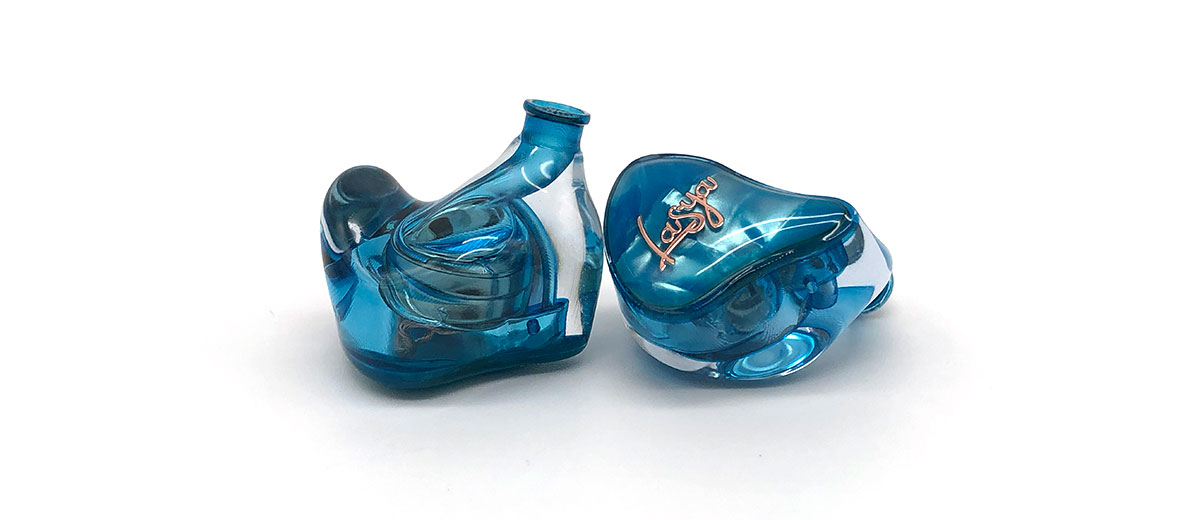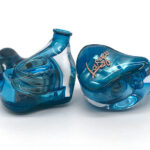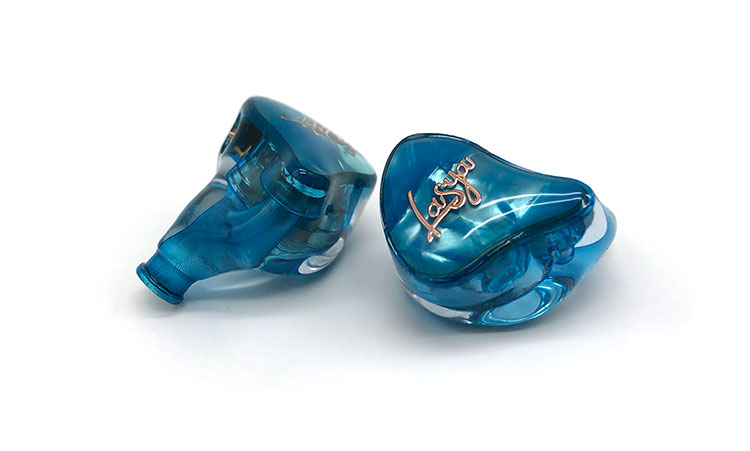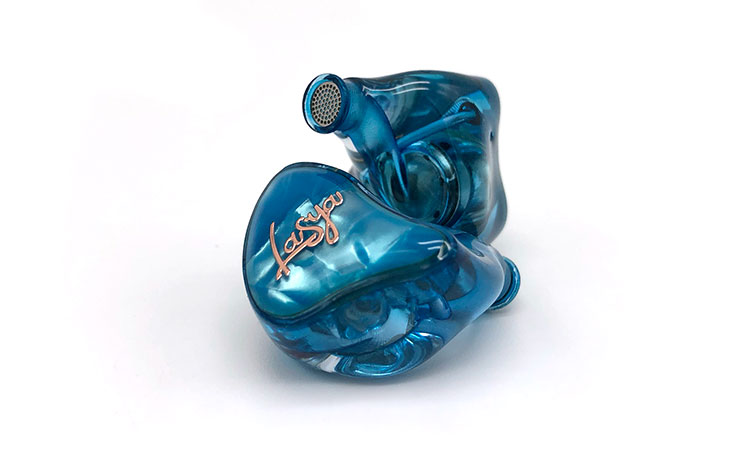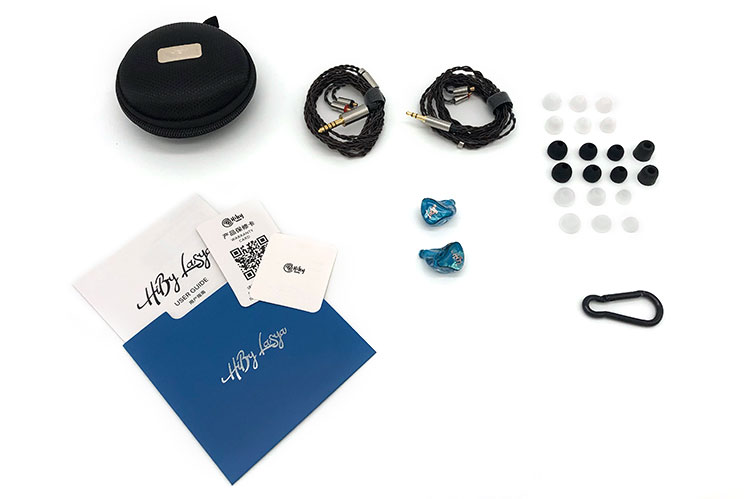Today’s review is an in-depth listen to the new HiBy Lasya single dynamic driver in-ear monitor which is being pitched for female vocal lovers. It is priced at $239 but is currently discounted to $199.
Disclaimer: This is a sample sent to us in exchange for our honest opinion. Headfonics is an independent website with no affiliate links or status. We thank HiBy Music for this opportunity.
You can click here to learn more about HiBy products that we have previously covered on our website.
Note, that this feature follows our latest scoring guidelines which you can read up on here.
It’s been a while since our last IEM feature from HiBy as the company has been busy instead with their dongle and DAPs such as our recently reviewed R5 Gen 2. Now, here comes the new HiBy Lasya as their latest entry into the ever-growing market of In-Ear monitors.
At the moment, being good simply will not cut it anymore as companies race to iterate and innovate with consumers always on the lookout for that gem in a stack of letdowns.
Taking a different approach HiBy is pulling back on tech with a simpler single dynamic driver configuration and focusing instead on performance and fit.
The pitch is made clear; aiming for those who enjoy a quality female vocal reproduction complete with exceptional top-end clarity all in an affordable package housed in a unique CIEM style shell.
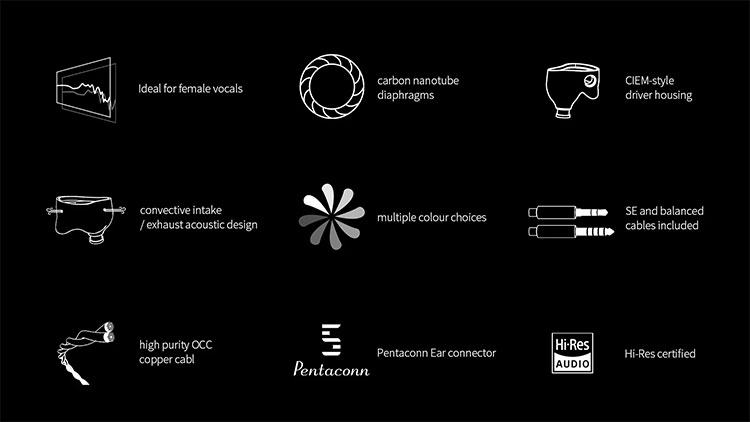
Tech Highlights
The Lasya uses a single 10mm carbon nanotube dynamic driver optimized to prevent cone breakup. It has an impedance of 32Ω and a sensitivity of 108dB/mW producing an average frequency response of 20Hz-20kHz.
While advancement in the internals is pretty dry, one only needs to look outside to see that Lasya’s build approach is worth a second look. Using multiple real-world scans of ear canals, concha, and outer-ear structures, HiBy came up with their version of a shell that is supposed to rival even tailor-made ones in comfort and fit.
As CIEMs typically employ the service of a 3D printer due to the complexity and individuality of each ear, inevitable is the occasional issue of z-banding. Since Lasya is designed for mass-production, HiBy needed a more reliable solution and used a high-quality transparent epoxy instead.
And moving away from the more common MMCX and 2-pin connectors, Lasya features Pentaconn Ear sockets which are supposed to be more reliable once the IEM got subjected to repeated disconnections and wear.
Design
You can choose between three colors for the Lasya but the bright blue seen here is the one that pops out the most in the collection. HiBy tastefully did not overcook the design as they left the statement to come from the character of the shell that mimics custom-fitted monitors.
The transparent epoxy used in the main body is contoured to follow the shape of the outer ear and as the material type suggests showcases the single dynamic driver and all the channel routings inside.
Appearing on the face plate is stylized labeling of ‘HiBy’ for the left piece and ‘Lasya’ for the right safely protected from wear by a layer of resin. Each side of the earpiece is easily identifiable by letter markings and color-coded rings near the Pentaconn Ear sockets.
Comfort & Isolation
Having more surface contact than most UIEMs, I found the fit of Lasya’s shell to be well above expectations even though it is still not completely matched to my ear to be a true CIEM.
The nozzle depth stopped right where no pressure is felt in the ear canal while also tightly following the contours of my outer ear. And unlike other IEMs that tend to unseal when talking, I find the Lasya to be less susceptible to falling out.
Those looking for a good isolating IEM can consider the Lasya letting you tune out of a rainy Sunday afternoon and just chill with the music. However, being purely passive it will still let in more distinct sounds like a phone ringing or a TV running.
Tips
HiBy positions the Lasya as an experience focused on female vocals but as we all have our taste and take in what we like in an IEM a little fine-tuning has been left to the ear tips provided.
Coming in four flavors users can try the Lasya in crisp, balanced, and bass-tuned ear tips as well as a pair of memory foam ones who prefer its fit over silicone.
Balanced is the firmest of the three silicon tips having a thicker material, Bass has the same height but comes with a slightly narrower bore, and the one labeled crisp is the shortest but also has the widest opening diameter.
The memory foam ear tips are a nice addition and work well but the pair that came with my unit is not cut at the same height and therefore one leaves more pressure than the other.
Stock Cable
The Lasya comes with 2 options, a 3.5mm SE and a 4.4mm balanced cable. Uniquely, the Lasya stock cables are terminated with Pentaconn Ear sockets which might not be as readily available in the aftermarket yet as more commonly used connectors such as MMCX or 2-pin.
It’s a comfortable fit though with the ear guide nicely hugging the shape of my ear. Both cables are moderately pliant and will not cause any issues when moving around with the Lasya.
Both cables make use of gold-plated terminations and a plain splitter. Inside, HiBy has opted for an OCC copper wire in a 4-core configuration running a length of 120cm.
While the nicely braided look is great aside from only a minor amount of memory retention present there is a touch of microphonics when directly touching the cable above the splitter.
Packaging & Accessories
HiBy sent the Lasya in a shrink-wrapped blue cube box that is quite a large size for your typical IEM retail box. Inside, the IEMs and accessories are all hiding inside various papers and warranty cards in a three-layer display.
The Lasya is enclosed in a thick layer of foam that will initially give a peek of the faceplate. Underneath, four sets of ear tips are nicely tucked in the same foam material used with the IEM and are labeled indicating their proposed sound profile.
Finally, letting the rest of the accessories out of the box, the hard case at the bottom-most layer once opened will present a carabiner and the two stock cables.
Sound Impressions
The balanced ear tips were used in the formulation of the sound impressions. How the sound is changed by swapping tips will be discussed separately
Summary
I went in blind testing the Lasya as I formed my initial impressions and boy do the mids jump out at you with no intention to let go. These monitors have a bias towards the vocal region which I later realized was the actual goal after checking online for more information.
Bass remains tight and relatively linear with a similar balance on the highs. Especially on instrumental tracks where the response could be seen as clean and quite neutral but will come to life once the vocals kick in.
Timbre
With a decent punch and a rounded body, the low-end of the Lasya is dry but carries an honest amount of rumble which, even on slower booms, sounds controlled prioritizing accuracy over slam. However, the note texture somehow mutes some expected detail. With careful inspection, the information is there but it is harder to perceive.
Bass guitars are pleasing and a bit girthy but still come up a bit smoothed out. Although, not overblown there is enough punch to adequately support the midrange and not leave it too light sounding.
Jazz singers and emotive balladeers are right up the alley of what the Lasya is tuned for as it not only hits with attractiveness but also pulls up details around the edges. While colder vocals have a similar drier quality from the bass tuning, going up into the upper frequencies it breaks in a more liquid fashion with lots of air and room.
If there’s a trick to the midrange, I’d say it’s the very intimate vocal placement that will mostly stay between the ears and right in front of your eyes.
Playing piano hits with authority with a nice weight and reverb but still just back enough behind vocals. Guitar timbre is a bit thicker than natural on lower registers, but higher-pitched solos climb to a pleasant and calmer ring.
Violins and cymbals still get a flashy and well-textured presentation but come up a bit short on expression. Trombones fare better in terms of handling the dynamics of shouty passages. The treble region is not the star of the show compared to the midrange but from time to time takes the stage when called upon.
Staging
Those who prefer a more intimate rendition of their playlist are in luck as the Lasya is not the widest IEM around with a perceived width of around halfway to the shoulder area and has a depth that is closer than expected.
Listening to live songs will immediately place you in the front row with the audience clapping beside you rather than around you. However, the Lasya is also appropriately airy and clear sounding in the highs and able to scale the room enough to disperse subtler spatial cues.
Where the Lasya gains in merit for having a constricted stage is the precise imaging of panning guitars and crisp placement of pops and clicks.
Ear Tips
Changing the ear tips from the balanced ones not only affects the amount of boost a frequency range will have but also touches a bit on timbre.
With synth bass-heavy pop songs, the bass ear tips comparatively pepped up the low-end giving it a more immediate punch. The newly found energy however tilts the lower midrange up with it slightly.
Having a more perceivable effect on the Lasya’s character are the crisp tips that not only relaxed the bass pushing the midrange image a bit further forward but also gave it a more sprightly and shimmery treble range. This shifted the silky tonality of the midrange to sound brighter but notably received more clarity in return.
Changing to the memory foam tips didn’t change the tonality much aside from the improved seal. It still however calmed the shoutier edges of the treble and made guitars more crystalline sounding.

